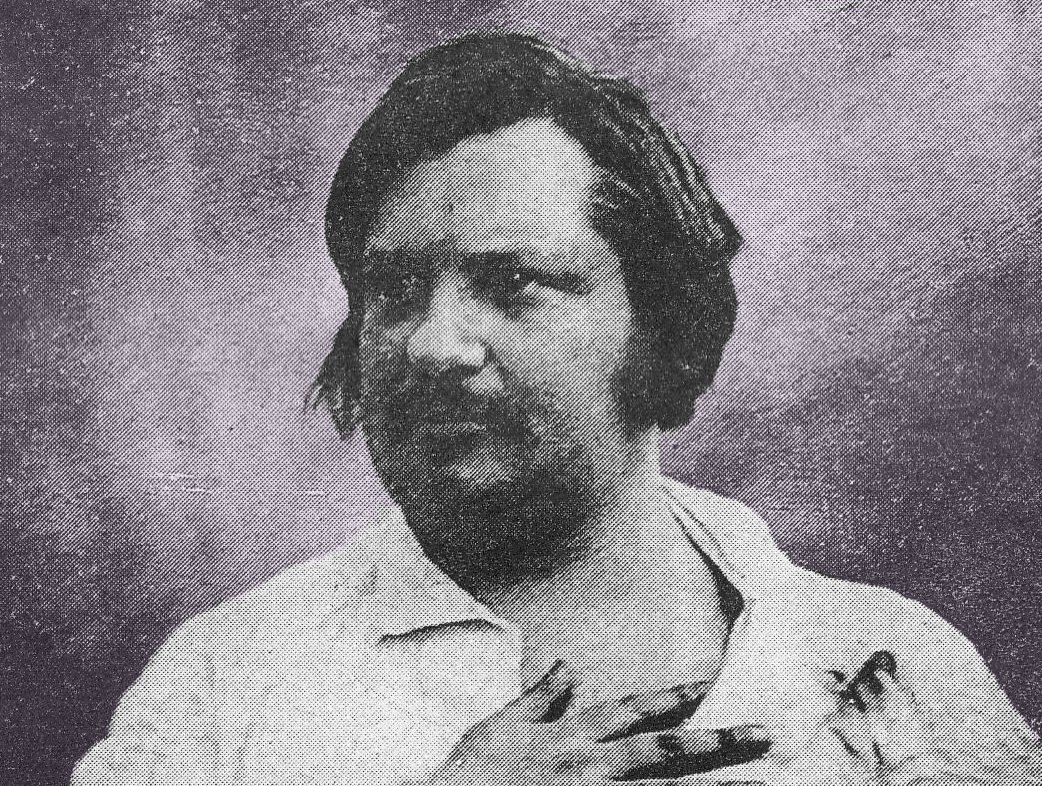
Honoré de Balzac’s dream as a child was “to be famous and to be loved.” Having achieved the desired celebrity with Scenes From a Private Life in 1829, he continued to have poor luck with the ladies. This was not for his lack of trying: he paid his compliments to Duchess D’Abrantes, Madame de Berny, Mademoiselle de Trumilly, and the Duchess de Castries. All rejected him in turn. Ewelina Hanska first wrote anonymously to Balzac after reading his work, and their correspondence took a romantic turn. They married in 1850. He died five months later, reputedly of a heart condition.
To Ewelina Hanska
Paris, March 1833
I have told you something of my life; I have not told you all; but you will have seen enough to understand that I have no time to do evil, no leisure to let myself go to happiness. Gifted with excessive sensibility, having lived much in solitude, the constant ill-fortune of my life has been the element of what is called so improperly talent. I am provided with a great power of observation, because I have been cast among all sorts of professions, involuntarily. Then, when I went into the upper regions of society, I suffered at all points of my soul which suffering can touch; there are none but souls that are misunderstood, and the poor, who can really observe, because everything bruises them, and observation results from suffering. Memory only registers thoroughly that which is pain. In this sense it recalls great joy, for pleasure comes very near to being pain. Thus society in all its phases from top to bottom, legislations, religions, histories, the present times, all have been observed and analyzed by me. My one passion, always disappointed, at least in the development I gave to it, has made me observe women, study them, know them, and cherish them, without other recompense than that of being understood at a distance by great and noble hearts. I have written my desires, my dreams. But the farther I go, the more I rebel against my fate. At thirty-four years of age, after having constantly worked fourteen and fifteen hours a day, I have already white hairs without ever being loved by a young and pretty woman; that is sad. My imagination, virile as it is, having never been prostituted or jaded, is an enemy for me; it is always in keeping with a young and pure heart, violent with repressed desires, so that the slightest sentiment cast into my solitude makes ravages. I love you already too much without ever having seen you.
There are certain phrases in your letters which make my heart beat. If you knew with what ardour I spring toward that which I have so long desired! of what devotion I feel myself capable! what happiness it would be to me to subordinate my life for a single day! to remain without seeing a living soul for a year, for a single hour! All that woman can dream of that is most delicate, most romantic, finds in my heart, not an echo but, an incredible simultaneousness of thought. Forgive me this pride of misery, this naïveté of suffering…
Well, adieu, you who are one of my secret consolations, you, towards whom my soul, my thoughts are flying. Do you know that you address a spirit wholly feminine, and that what you forbid me tempts me immensely? You forbid me to see you? What a sweet folly it would be to do so! It is a crime which I would make you pardon by the gift of my life; I would like to spend it in deserving that. pardon. But fear nothing; necessity cuts my wings. I am fastened to my glebe as your serfs to the soil. But I have committed the crime a hundred times in thought! You owe me compensation.
Adieu! I have confided to you the secrets of my life; it is as if I told you that you have my soul.
FURTHER READING
Balzac’s notorious caffeine addiction, which is speculated to be his cause of death.
“Drifting hither and thither”: the original review of Balzac’s novel Séraphîta, a work largely inspired by his relationship with Hanska.
His ideal Paris.


